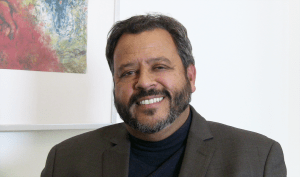The 2nd Latin American Reputation Conference was held in Medellín (Colombia) on 28 and 29 October. It was organised by Goodwill Comunicaciones y Reputation Institute, a leading international organisation dedicated to advanced knowledge of corporate reputation. This edition covered understanding what reputation is and seeing how it is managed in Latin American countries, through the Reputation Journey over the last year. During the event, the Reputation Institute presented the findings of its Reputation Leader Study; based on the opinions of more than 300 leaders, it analyses how companies manage this intangible asset, what challenges arise and what they consider good practices. In Latin America, 133 company executives were surveyed for this purpose. Taking advantage of the participation of the founder of the Reputation Institute, Charles Fombrun, we wanted to find out first hand his views on the progress of reputation management in this region.
– Actually, social media have been very useful: they have taught many imperialistic companies that “the emperor has no clothes” [“The Emperor’s New Clothes” is a short tale by Hans Christian Andersen about two weavers who promise an Emperor a new suit of clothes that is invisible to those unfit for their positions, stupid, or incompetent ]. Many who thought they had their stakeholders under control have learnt otherwise. As a result, companies have entered an age of transparency, in which they must dress, eat, wash, and live out their lives in public. This is a big change, but one that will help make companies become better corporate citizens.
– Senior executives trained in the “hard skills” of finance and operations need to become more sophisticated in the “soft skills” of reputation management. This entails understanding the powerful effects of emotions and engagement on the bottom line. It’s increasingly about managing ‘hearts and minds’ rather than hard assets and financial engineering. Doing this effectively means paying close attention to having the right performance indicators, and developing internal processes to ensure the company as a whole is guided by them.
– Many multinationals operating in Latin America have taken the reputation message seriously. Examples include the swiss consumer products company Nestlé, the swedish packaging company Tetrapak, and Italy’s pasta-maker Barilla. All demonstrate growing sophistication in implementing stakeholder principles throughout their operations.
Telefónica itself has become increasingly skillful in applying reputation thinking in its markets and business units in LatAm. Mexico’s CEMEX does so as well and has benefited from increasingly favorable stakeholder perceptions of its activities. Brazil’s energy giant Petrobras is far along on the reputation journey.
– Faith helps, no doubt! But when done right, the results of reputation management can come faster than you think. Embarking on the reputation journey systematically can also produce quick wins with key stakeholders who can help accelerate changes that show up as improved sales, lower investor churn, better borrowing rates, and loyal employees. Making many small changes, when done right, can create surprisingly big returns.
